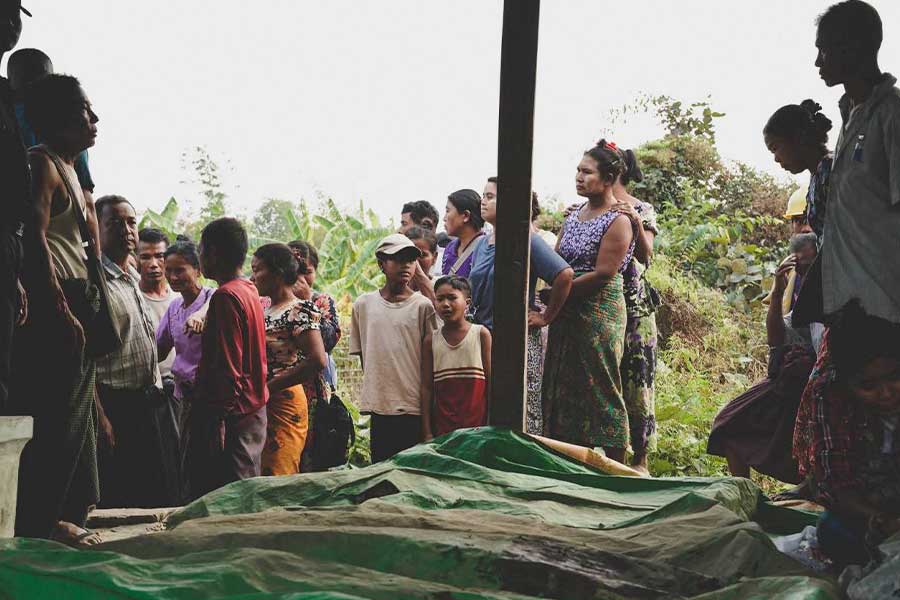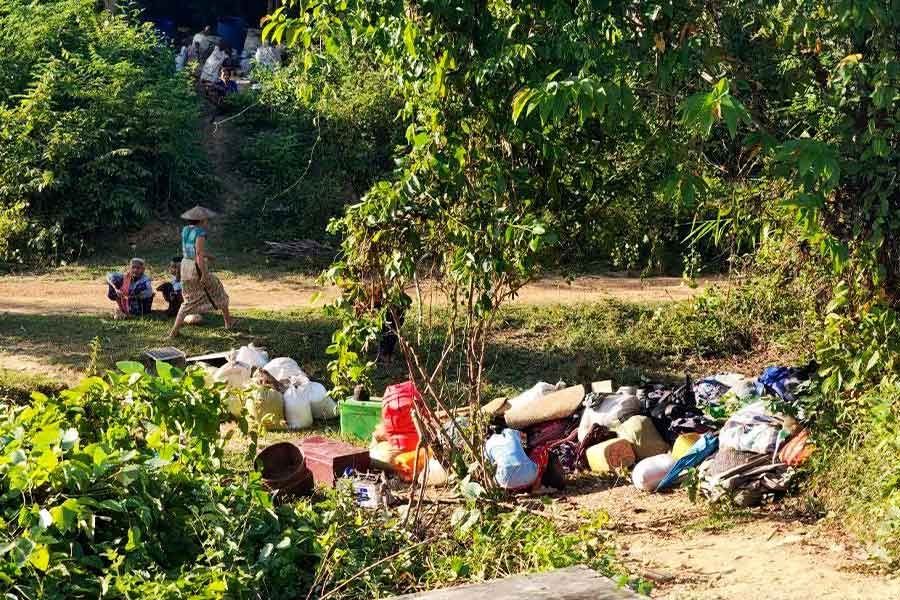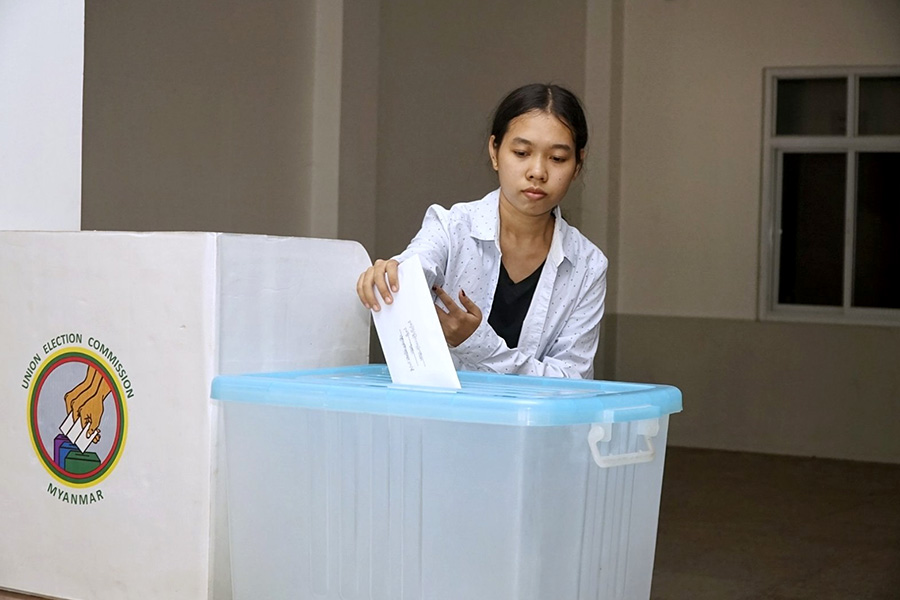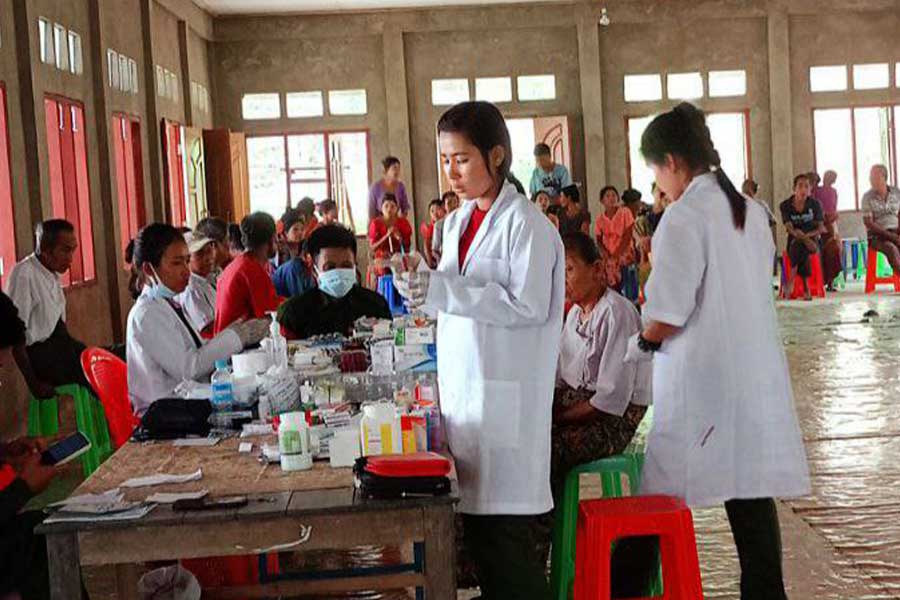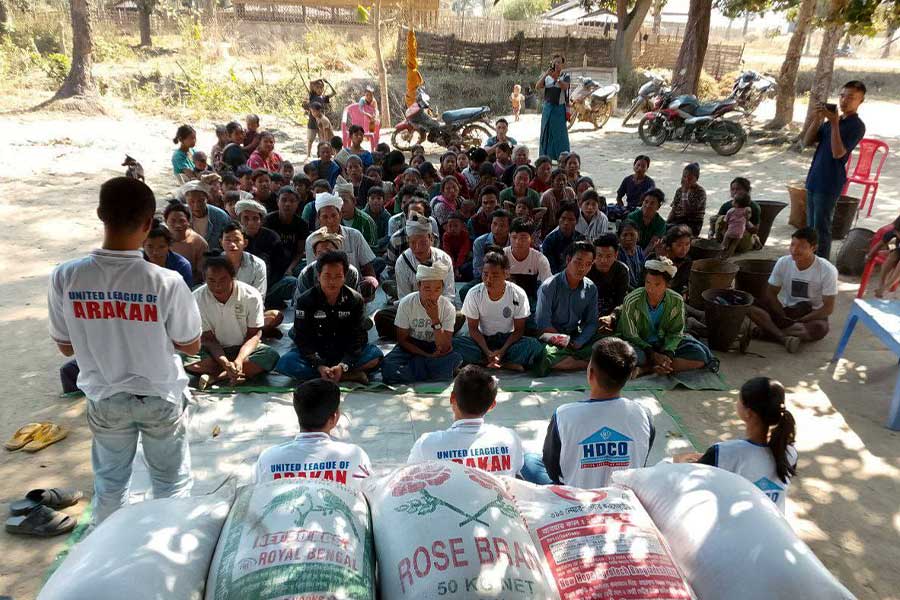- 15 mass casualty incidents from regime airstrikes reported in Arakan State since 2023
- Kyaukphyu IDPs forced to flee again amid junta airstrikes and artillery attacks
- New Diplomatic Movements Between Bangladesh’s New Government and the Arakan Public Administration
- Junta claims over 24 million ballots cast in 2025 poll, cites strong youth turnout
- ULA expands HIV prevention, healthcare services for sex workers in AA-held areas
Public urged to face up to proper mask disposal as pandemic drags on
Medical experts, municipal waste managers and environmentalists are united in reminding the public to properly dispose of used face masks during the COVID-19 pandemic.
12 Oct 2020
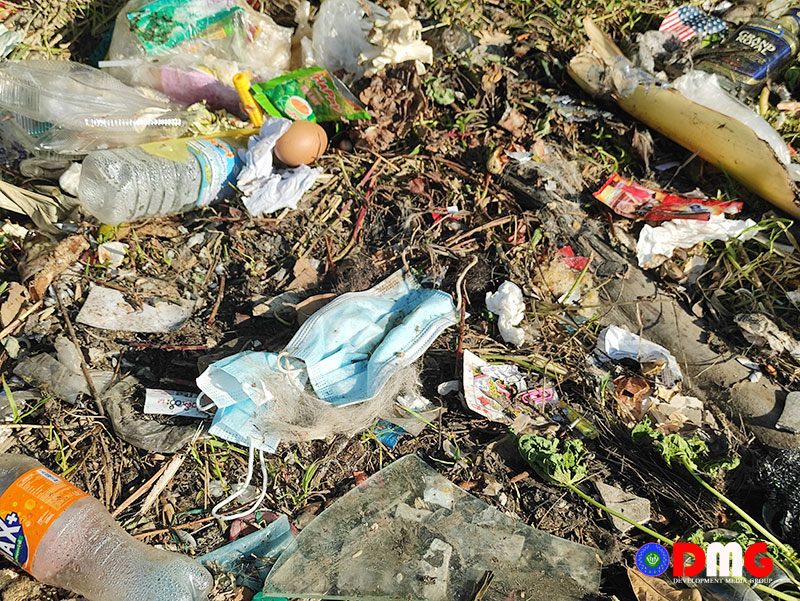
Thet Paing | DMG
12 October 2020, Sittwe
Medical experts, municipal waste managers and environmentalists are united in reminding the public to properly dispose of used face masks during the COVID-19 pandemic.
“That means dumping in trash bins with lids. Otherwise, the disease can be transmitted to other people,” said the medical superintendent of Sittwe General Hospital, Dr. Zaw Lwin. “If the mask inside the bin is touched by someone else, he or she can be infected. So, it is best not to use the masks that have been used.”
Dr. Soe Pyae Aung Win from Yangon said that at a time when much of the public’s focus is rightly on the risk of coronavirus transmission, there are other contagious diseases that could also be spread via used face masks.
The deputy director of the Sittwe Township Development Committee, U Kyaw Moe, said waste management in the COVID-19 era includes burying all the refuse from Sittwe’s quarantine centres.
When it comes to household waste, however, there is as yet no system in place to separate face masks from the rest of the trash, he said.
“At the places where we usually collect the garbage, the wastes are all mixed and there’s no separate packing for the masks. And we cannot burn it all, as it is the rainy season. But we have educated on the dangers to the scavengers who normally come to the garbage places,” U Kyaw Moe told DMG.
Environmentalists have pointed out that face mask use has soared due to COVID-19 public health mandates from the Ministry of Health and Sports, with negative ecological consequences due to the weaknesses or absence of systematic disposal practices.
“If the masks are not disposed of systematically, the environment will be littered. ... The city’s landscape will definitely be looking ugly. We should also think about this,” said U Hla Win, chairman of the Sein Pyar Environment Preservation Group in Sittwe.
As of 8 p.m. on October 11, there were 27,974 confirmed COVID-19 cases in Myanmar, with Arakan State’s 1,981 infections making it the second hardest-hit in the country.




